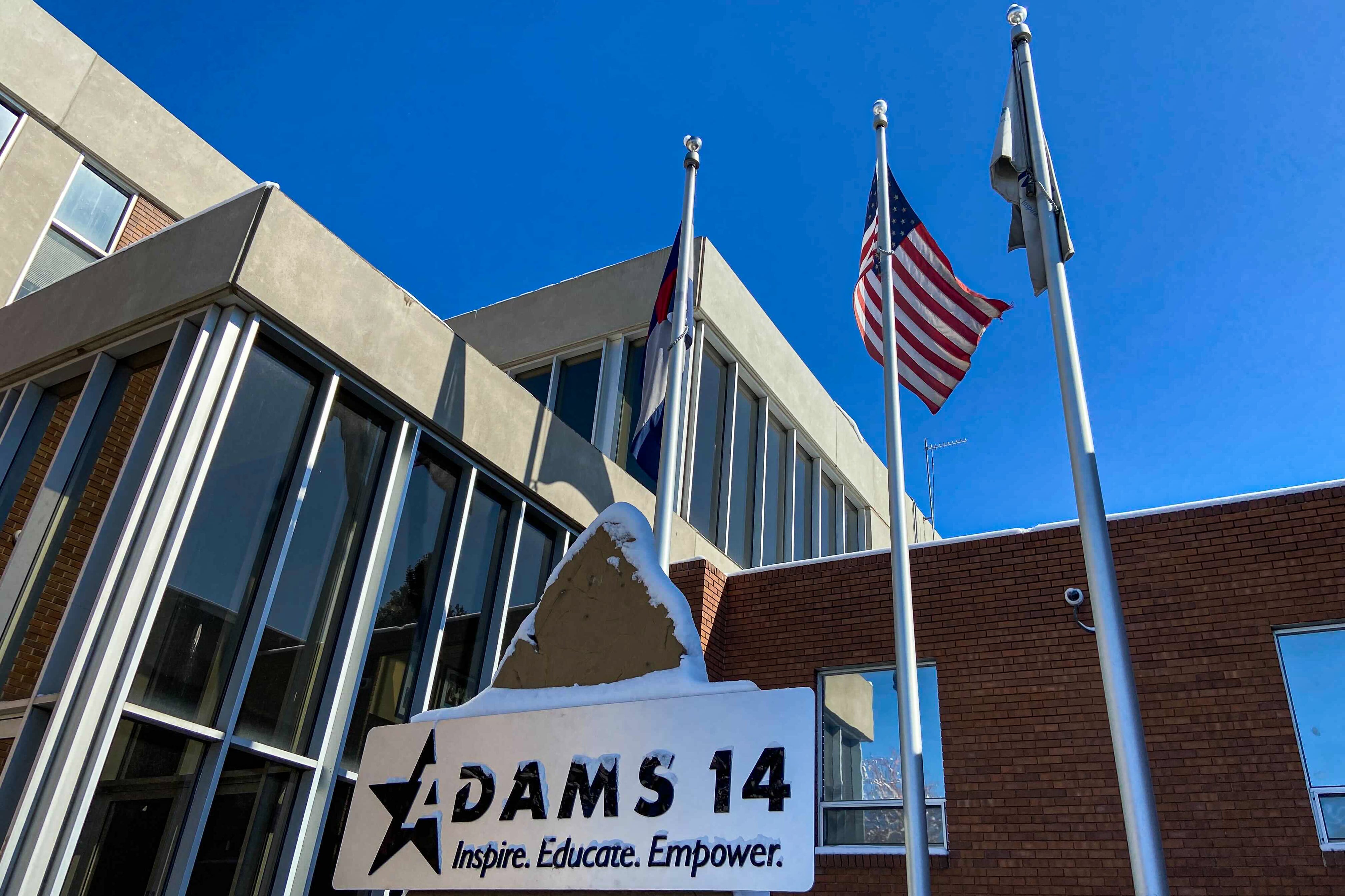The Adams 14 school district will regain its accreditation from the state of Colorado.
The State Board of Education on Wednesday afternoon voted 6-1 in favor of the state education commissioner’s recommendation to restore accreditation immediately. However, the change does not affect the state’s orders to reorganize and potentially dissolve the district.
Education Commissioner Katy Anthes said she made her recommendation after learning and reflecting on some of the district’s problems after the state removed accreditation in May. Mainly, she pointed to the district’s difficulty in hiring bilingual teachers from abroad. During a court hearing last month, the district testified that previously secured sponsors for the teachers’ visas had backed out after learning the district was no longer accredited.
Anthes noted the challenge that Adams 14 and its outside manager, TNTP, have in improving achievement in the struggling district, while “reorganization is considered.”
“I don’t want any unintended consequences around the loss of accreditation to make that road any harder than it already is,” Anthes said.
The state removed Adams 14’s accreditation as a largely symbolic move, with officials saying their May vote wouldn’t affect students’ ability to learn in school and earn a diploma, nor the district’s ability to receive funding.
“Little by little, the state board is understanding that its heavy-handed order has had unintended consequences on the children of Adams 14,” Joe Salazar, the district’s lawyer said in a released statement. “We are pleased with this recent development, and we hope this further builds on a more positive relationship between the state board and Adams 14.”
Board member Joyce Rankin, the sole vote against restoring accreditation, expressed concern about the district’s training of teachers in the science of reading. She said it was still unclear how many Adams 14 teachers have been trained, and wondered if international teachers would also be trained in the science of reading.
“I would like to focus more on the students rather than the adults in the situation,” Rankin said. “I think if we were going to emphasize this, and we were serious before, I believe I’m serious now.”
Board member Rebecca McClellan, who voted in favor of restoring accreditation, said she just wanted the public to be clear on the state’s reasons. “If there’s any chance at all that this makes the road or the pathway toward success more likely, then it’s the right thing to do.”
Two other board members, Steve Durham and Deb Scheffel who voted to support restoring accreditation, mentioned ongoing concerns with the district.
“The student achievement data in this district is heartbreaking,” Scheffel said. State achievement data released last month shows Adams 14 achievement declined on most tests in the 2021-22 school year. The one improvement was in sixth grade math where 5.3% of students met or exceeded expectations, up from 4.2% in 2019.
The state’s May reorganization order requires Adams 14 to set up a committee to consider redrawing district boundaries. Potentially, that process could ultimately cost the district control over some schools or areas. The process hasn’t yet started, and the district is challenging the order in court.
“We’re trying to figure out, what can we do? The district has a lot of wonderful teachers, but something is amiss and it’s been amiss,” Scheffel said. “I think we’ve been bending over backwards to do what we can… while still saying that it can’t just go on. We’re really trying to figure out what would matter and we hope that what we’re trying to do in partnership with you really matters on behalf of your students.”
Yesenia Robles is a reporter for Chalkbeat Colorado covering K-12 school districts and multilingual education. Contact Yesenia at yrobles@chalkbeat.org.







